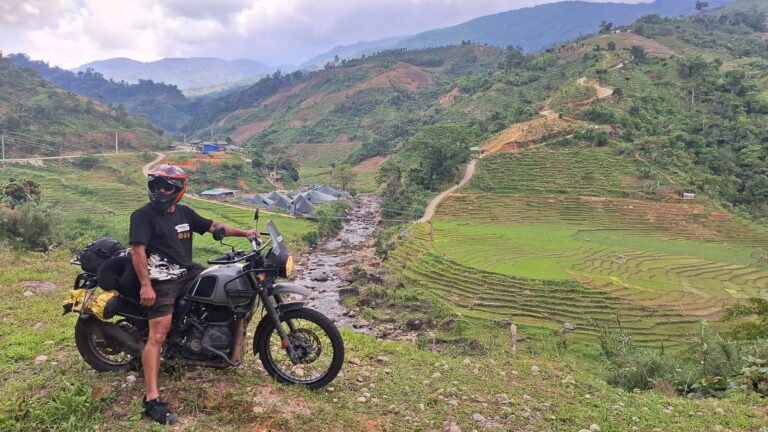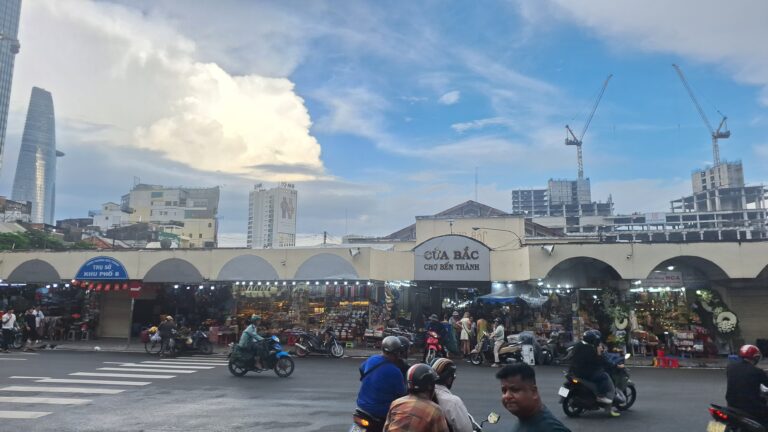
Home > Blog > Motorcycles > To Rent or Buy a Motorbike in Vietnam
To Rent or Buy a Motorbike in Vietnam
Share:
- Published:
- Updated: 20/01/25
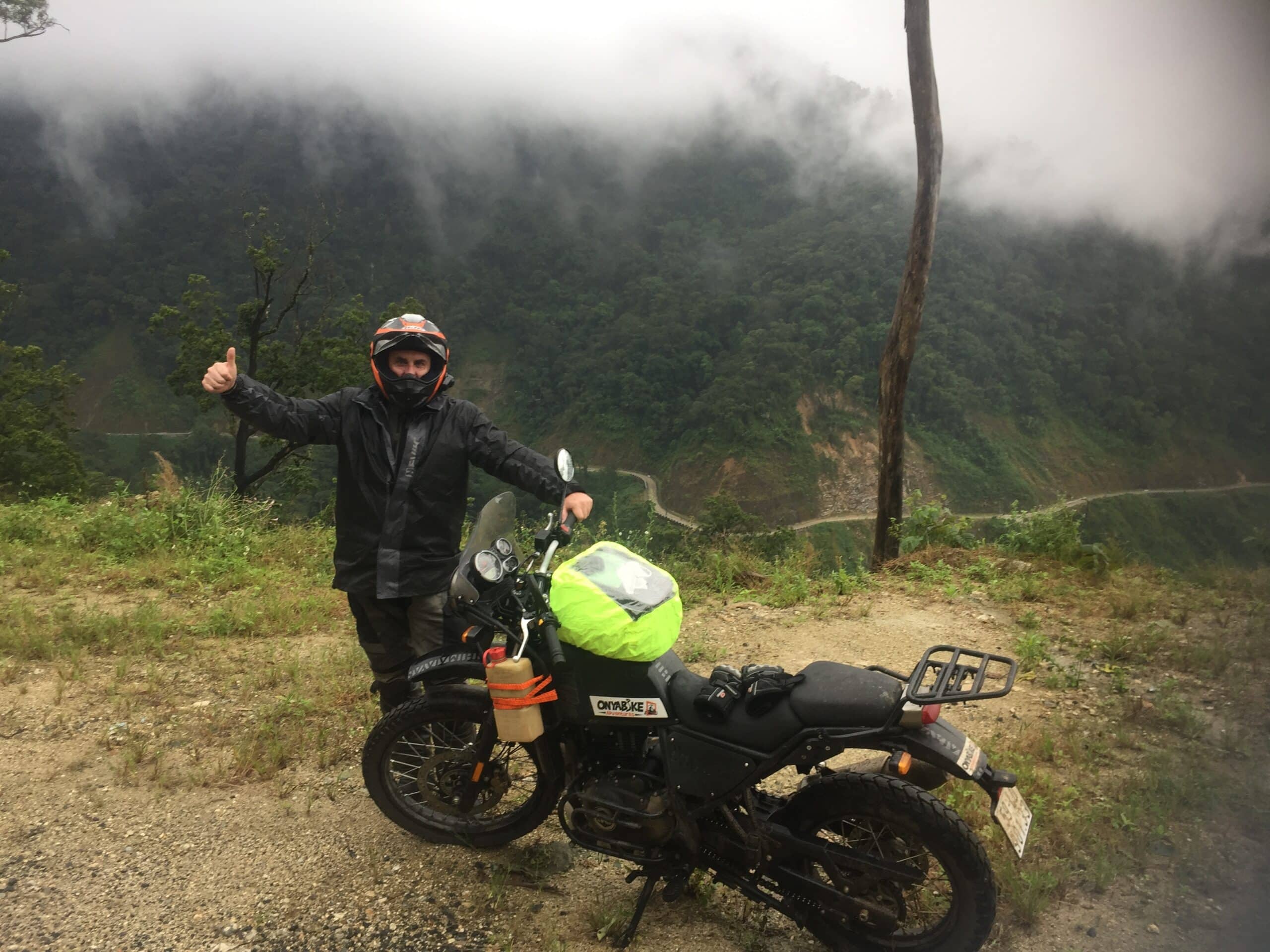
You’ve probably seen Vietnam on TV: from travel, cooking or motor shows or even survival experts taking their turn exploring a beautiful country.
The Internet is abuzz with the latest photo ops and clips of traffic or incredibly delicious food. You’ve read about it online or in travel books and airline magazines. Some of your friends tell wild stories of their time there. Others still consider it too dangerous a place to travel without a guided tour. As you start planning your own trip, whether alone or with friends, either planning on slowly exploring the country and culture, or racing from highlight to highlight.
Table of Contents
Questions to Consider
For you, there is only one question when it comes to the Vietnamese road-trip: where do I get a bike? Which leads to the real question: is it better to rent or buy a motorbike in Vietnam?
It’s a complex question with no one-size-fits-all answer. And, there is not a lot of information out there to help you make decisions for your needs. What kinds of bikes are available? What are the legalities of riding in Vietnam? What will give you the most freedom for the best price? How long will it take to organise?
These questions and more will come up when you start thinking of a bike trip through Vietnam. Along with the more easily answered, “Can I just bring my bike over?” You could bring your own bike if you have the time, patience and money to organize the import and export along with the fees. However, it is likely to cost you more than the price of the bike by the time you factor in shipping and on the ground help. The mountains of bureaucracy that you would face for this small task and the exorbitant cost will rule out this option for all but the most committed.
Motorbike Options in Vietnam
Whether you are going to rent or buy a motorbike, your options are likely to be quite limited. Although there are more and more different types of bike on the road in Vietnam every year. Ten years ago, it was uncommon to see anything other than step-through scooters. Normally between 70cc and 125cc, and the occasional leftover soviet-era bike or a classic Honda.
Now you can see nearly any bike here that you would expect to regularly see at home. Although the vast majority will still be 125cc step-throughs. You will often go days without seeing any bike larger than that, even in the cities. This is true of the rental situation as well. With a small number of places offering larger capacity bikes, mostly consisting of 250cc off-road bikes.
What to Expect

The majority will be smaller step-throughs with automatic or semi-automatic transmission. The vast majority will need to be returned to the same shop where you rented them. It is possible to find places that will rent with a drop-off in another city. Normally between Ho Chi Minh (Saigon) in the south and Ha Noi in the north, and occasionally Da Nang in the center. However, this is a limited option. The lack of larger capacity bikes is mostly due to the licensing laws in Vietnam. Bikes above 175cc being covered by a different driver’s license than smaller bikes.
Different regulations when you buy, sell, and rent a motorbike will also apply to the different sizes of bikes. An international driver’s permit should allow you to drive any bike. This includes the larger capacity bikes if you can find one to rent or to buy. Whether renting or buying, be sure to check the availability and quality of safety gear.
Renting vs Buying: Legal Challenges
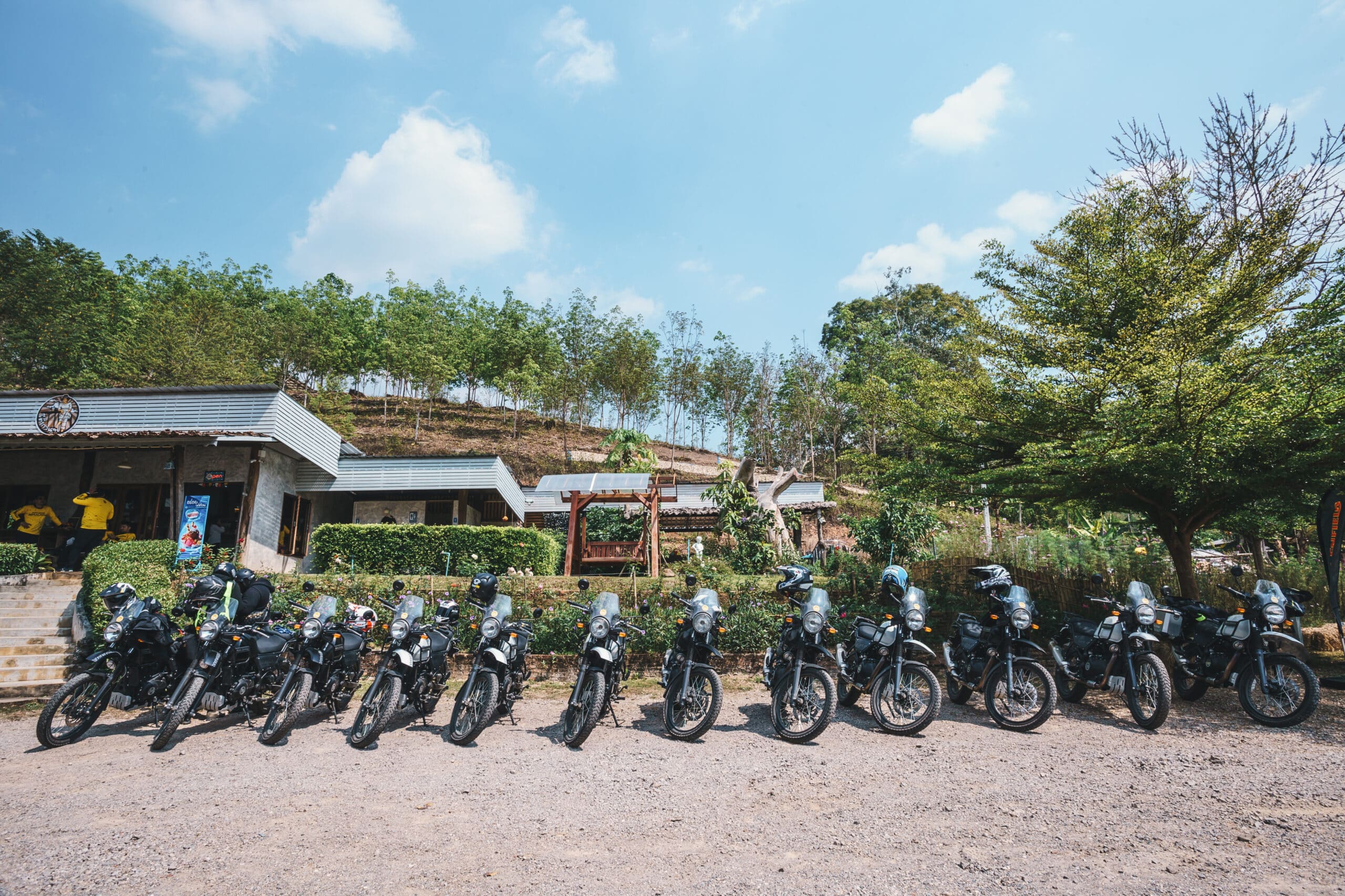
This may be the most important question. If you are like us at Onyabike Adventures and would prefer to be covered by insurance while you ride, as it will be void if you are riding illegally. The easy answer is renting, but this comes with a large caveat, so allow us to explain.
While it is entirely legal for a foreigner to own a bike in Vietnam, you need a residence permit if you want to register it in your name. You will find that many sellers are either ignorant of this, or they willfully ignore this fact. A quick online search or searching certain Facebook groups will show you many bikes for sale in Ha Noi or Ho Chi Minh City. Many of these bikes are advertised with the “blue card.” This is the legal registration document for the bike. However, you will find more often than not that the person selling the bike is not the person the bike is registered to.
The Challenge Begins
This complication leads to longer delays as you and the seller would need to track down the owner. Then you need to take them to the local Government office to have the bike transferred to your name.
At this point, you would likely be told that you don’t have the required paperwork (residency permit) to have your name on the bike’s registration document. Without the bike in your name, you are technically covered by the same laws as if you were renting it. So that should make the answer easy then, renting is the legal way to go.
This is true; however, it is not as straightforward as you may think. The same problem may exist regarding the registered owner not being the person who is renting you the bike.
Due to a law requiring that you have a letter from the person renting you the motorbike in Vietnam, stating that you are riding this bike by legal contract with them, not having the original owner rent the bike becomes a problem, legally speaking. This may not be too big a deal if you are legally renting the bike. You should be able to prove it if you need to make any kind of insurance claim. However, you may still face a problem if stopped by the police.
Legality is a Minefield
This, of course, cuts to the heart of the matter when it comes to renting a motorbike in Vietnam. As far as we are aware there is only one company in Vietnam that legally allows renting bikes over 175cc’s to foreigners. Of those that rent out smaller bikes, the majority of them are not licensed to rent to foreigners either. This is where you will need to dig a little deeper with your research. Contact the company you plan to rent from for confirmation that they are, in fact, legal.
So legality is a minefield. So let’s talk about freedom: will renting hinder you in any way or is it a better option than buying? When it comes to the actual ride, the fun part of all this that will make the effort you put in worthwhile. We don’t see any difference between if you rent or buy a motorbike. Neither should give any kind of advantage or disadvantage in your daily travels. Assuming you have the legal paperwork for the bike if you get stopped. In the eyes of most everyday Vietnamese that you will encounter, your motorbike is your bike whether you rent or buy.
Freedom of Movement

How you spend your time at either end of the trip will be most affected by your decision. It certainly can be fun going around looking at bikes and haggling with different sellers. And, this may seem preferable to spending hours online searching for a reputable rental company. But will it really save you time online?
The answer is probably not. Unless you happen to be extraordinarily lucky, your online search for a bike will be similarly frustrating to the online search for a rental company. There are many companies that specialize in selling bikes to tourists. Some of these will arrange for a buyer at your destination. This will save you time and headaches at the end of your journey.
Shopping Around
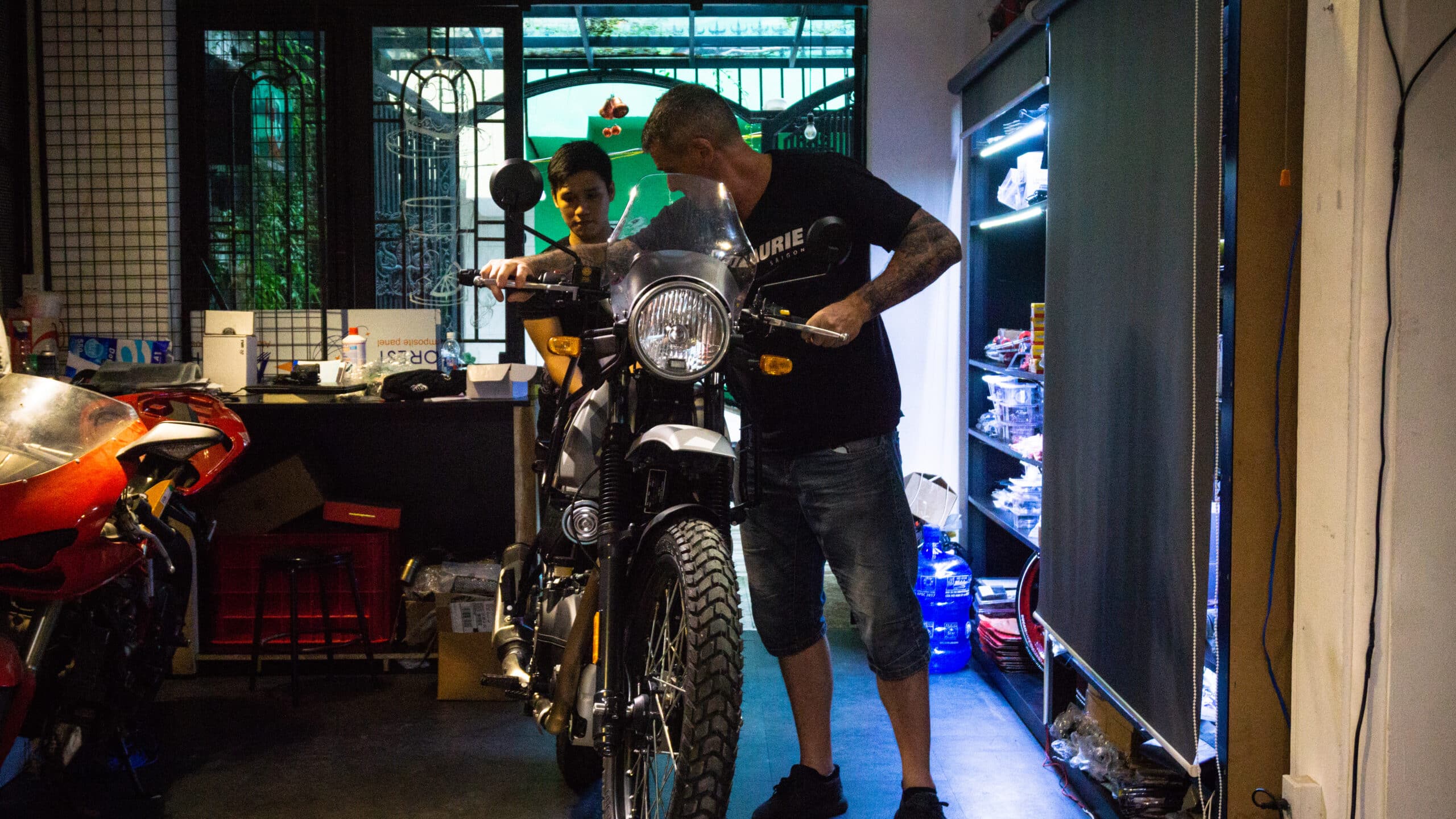
In our experience, they often leave the maintenance of this motorbike to those that buy or rent them. This, of course, could leave you buying a bike that has not been shown any love, possibly for several trips up and down the country. Your research could lead you to a more reputable seller, with bikes in good condition, who is willing to set up a buy-back option for you. However, you will most likely be left with an extremely limited selection of models.
The most common models with these retailers will be 125cc step-through scooters. Both are semi or fully automatic, or the ubiquitous 110cc “Honda” Win, with manual transmission. Though the majority of these are not Honda. Rather Daelim or some other knock off-brand, and not a bike we have ever found much joy on.
Buying a larger bike from a private seller will, of course, leave you needing to spend more time in online searching. As well as time at the end of your journey to sell it, in a market that has not got much demand for larger bikes.
The Rental Scheme
Price will also be an issue you will want to consider when choosing to rent or buy a motorbike. The easy answer seems to be to buy then sell for the same price at the end of the trip. This is of course mostly a pipe dream. As explained above, the glorified rental scheme where you buy the bike and sell it back at the other end, not only absolves the owner of maintenance concerns. This also allows them to set the price.
While buying and selling privately means that, unless you have unlimited time to sell, you will likely join the massive “fire-sale” of people rapidly dropping the price as their departure date looms ever closer. The cost to rent a motorbike in Vietnam is likely to be higher than if you buy and sell in a perfect world. At least it is a set cost that you can budget for. And, more importantly, you can then spend that extra time on the road rather than trying to sell your bike at the end of your trip.
What About Maintenance?

Maintenance is, of course, another concern. Here we cannot stress strongly enough the lack of maintenance that goes into some of these bikes that are repeatedly being driven up and down the country. We have heard too many tales of people buying bikes from tourists after they have done the trip. All of these bikes needed extensive work before being what we would consider road-safe.
The people that peddle bikes to tourists want to maximize their profits so will often skimp on general maintenance. Buying from a private seller carries all the problems in Vietnam that you would encounter elsewhere in the world when it comes to reliability, with the added problem of, perhaps, less dealer maintenance.
Research is the Key
Over the years we have had both good and bad experiences with rental bikes. Believe that any serious company that wants to prolong their business will have a much keener eye towards maintenance than someone who is planning on selling a bike at the end of a two-week trip. With some of the rental companies, you should be able to get an idea of what kind of treatment their bikes are getting. Just ask a few questions in an email regarding the age of the bikes and service programs.
Be sure to ask about what their maintenance policy is. And, the kind of care that is As explained above, the glorified rental scheme where you buy the bike and sell it back at the other end, not only absolves the owner of maintenance concerns but also allows them to set the price. expected from you if you want to take the bike for a longer trip.
Online reviews can be a good source of information regarding this as well. However, it may be difficult to separate worthwhile comments from people who just want to complain about bike quality because they had a flat tire.
It shouldn’t take too much mechanical knowledge to at least be able to see the difference between those that genuinely had good bikes and those that could have ridden your worst nightmare and still loved everything about it at the end of the trip.
On the road maintenance
Another good question to ask would be whether or not the seller or rental company will be providing you with a list of preferred mechanics in different cities; it may be an indicator that they are more serious about maintenance than others.
While some larger retail dealerships have shops that will work on any bike, many will not. Some can not even be counted on to service bikes that they have sold. You can’t expect to be able to pop into any dealership in Vietnam and have your bike serviced.
We would expect a company to be able to recommend someone in Ho Chi Minh, Ha Noi and Da Nang as a minimum. Looking for a rental company with an option to rent in one city and return in another instead of a tour would be a good way. This is to ensure that you have accurate information from a current source.
Onyabike Adventures advice for your best option
Organizing a successful bike trip through Vietnam takes quite a bit of time and research before you leave. Having a solid rental option that you feel you can trust seems to be the safest way. This is to ensure you have the bike you want, at the time and price you want.
It will give you more time to enjoy the beautiful Vietnamese countryside and the thrill of riding with the least amount of hassle. If buying, be sure to do thorough research on the seller. Be sure to budget adequate time before starting out and at the end of the trip to both buy and sell a bike. There is no easy answer and lots of research to do before a trip. However, the joy of riding in Vietnam will make it all worthwhile.
Related Posts
Recent Posts
